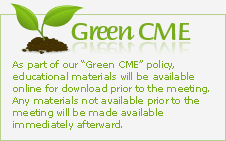-
Register Now
-
Registration for this event is currently not available. For more information, please email support or call the Special Services number listed below.
Special Services
If you require special assistance to attend this event, please call Candy Back at (859) 218-0321.
An Equal Opportunity University.

Accreditation Information
In support of improving patient care, University of Kentucky HealthCare CECentral is jointly accredited by the Accreditation Council for Continuing Medical Education (ACCME), the Accreditation Council for Pharmacy Education (ACPE), and the American Nurses Credentialing Center (ANCC), to provide continuing education for the healthcare team.
CME
This enduring material is designated for a maximum of 1.00 AMA PRA Category 1 Credit(s)™. Physicians should claim only credit commensurate with the extent of their participation in the activity.
This training has been approved by the KBML as meeting the statutory requirements of HB1. ID# 0522-H1.0-UK2d
IPE Competencies
- Values/Ethics for Interprofessional Practice
- Roles/ Responsibilities
- Interprofessional Communication
- Teams and Teamwork
CPE
This knowledge-based activity will award 1.00 contact hour (0.100 CEUs) of continuing pharmacy education credit in states that recognize ACPE providers.
ASWB ACE
As a Jointly Accredited Organization, UK HealthCare CECentral is approved to offer social work continuing education by the Association of Social Work Boards (ASWB) Approved Continuing Education (ACE) program. Organizations, not individual courses, are approved under this program. State and provincial regulatory boards have the final authority to determine whether an individual course may be accepted for continuing education credit. UK HealthCare CECentral maintains responsibility for this course. Social workers completing this course receive 1.00 clinical continuing education credit.
CNE
The maximum number of hours awarded for this Continuing Nursing Education activity is 1.00 nursing contact hour.
Needs Statement
Nearly 60,00 young children are seen in Emergency Departments – about 4 busloads per day – each year due to accidental ingestions. About 61% of poisoning deaths are attributed to medication and/or illicit substances. In Kentucky, nearly half of all cases reviewed by the Child Fatality and Near Fatality External Review Panel with a determination of neglect due to unsafe access to deadly means, involved overdose/ingestion of medication or illicit substances. While caregivers verbalize the importance of safe medication storage, very few caregivers practice safe medication storage. Providers who prescribe MOUDs can play a large role in stressing the importance of safe medication storage with patients.
Objectives
Upon completion of this activity, participants will be able to:
1. Cite National and state data on ingestions
2. Identify documented risks to children attributed to unsafe medication storage by caregivers
3. Discuss talking points for teaching caregivers how to safety store medications.
4. Name resources for safe medication storage
Target Audience
Medical providers, therapists/counselors, case managers, nurses and peer support specialists working in practices that prescribe medications for opioid use disorder (MOUD). Attendees can receive free medication storage lock bags to distribute to their patients.
Faculty Disclosure
All planners, faculty, and others in control of educational content are required to disclose all their financial relationships with ineligible companies within the prior 24 months. An ineligible company is defined as one whose primary business is producing, marketing, selling, re-selling, or distributing healthcare products used by or on patients. Financial relationships are relevant if the educational content an individual can control is related to the business lines or products of the ineligible company.
None of the planners, faculty, and others in control of educational content for this educational activity have relevant financial relationship(s) to disclose with ineligible companies.
The material presented in this course represents information obtained from the scientific literature as well as the clinical experiences of the speakers. In some cases, the presentations might include discussion of investigational agents and/or off-label indications for various agents used in clinical practice. Speakers will inform the audience when they are discussing investigational and/or off-label uses.
Disclosure of a relationship is not intended to suggest or condone commercial bias in any presentation, but it is made to provide participants with information that might be of potential importance to their evaluation of a presentation.
